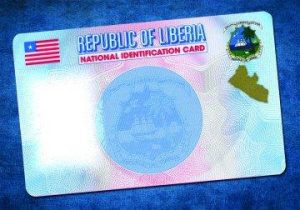Some countries issue biometric ID cards to their citizens. Others use chip cards. Still others use paper cards. And some countries don’t use any cards at all.
Michel Dorner, CEO of Variuscard GMBH and vice president of the International Card Manufacturers Association, sees market opportunities in Africa and the Asia Pacific region.
“China is growing so big with hundreds of millions of people, and Africa is a big potential market because there’s nothing there yet—you’re starting from a blank piece of paper,” Dorner said. “For example, no one really knows how many people live in the Democratic Republic of Congo; they think it’s about 60 million, but it could be 100 million. No one knows.
“Africa and the Asia Pacific region are headed towards the government having online registries where officials can very quickly verify a card online and see if a person is legal or illegal in the country, or even if a car is stolen, etc.,” Dorner said.

European countries are probably the most advanced and most have been using chip ID cards for the past 15 years, Dorner said. But countries just starting out don’t need all the bells and whistles when it comes to ID cards.
“There are countries with no card printers,” Dorner said. “They do not need the highest-end chip card with biometrics and polycarbonate. Even if they could produce such a card, they don’t have the necessary devices in the field to read the chips; they can’t afford it. Plus, they’re not making cards for populations of five or six million people, it’s more like 50 or 100 million people.”
He suggests those countries consider a medium-level card, something that has a photo and some basic security features similar to those on a bank note. Those cards could be easily read in the field and could also be used to verify someone’s age.
“We’ve worked in multiple countries and they might say ‘we want top-of-the-line cards,’ but we discover that they actually need help before we even get to the card,” Dorner said. “We will work on collecting and organizing data, which is a very complex process that can take up to two years. We’re not only card manufacturers, we become software and hardware partners.”
Before any country decides to undertake an ID project, Dorner suggests they conduct research. For example, government officials might present a card proposal that, if produced, wouldn’t conform with the international rules on travel and thus wouldn’t be a valid ID for its citizens to travel internationally.
“If I could make one suggestion to governments that want to implement an ID card project, it would be to get in touch with a non-profit like ICMA to inform themselves about the process before they start. That way, they will come to the table understanding what the issues are,” Dorner said.
ICMA Member Benefits
For nearly 30 years, ICMA has represented the interests of the card industry—which includes manufacturers, personalizers, issuers and suppliers—as its leading global association.
ICMA maintains several industry-leading training and education programs about card manufacturing for members. These include the Advanced Card Education (ACE) certificate and the web-based Card Industry Training & Education programs, which provide information on key areas of the industry, as well as online tutorials and webinars on specific topics from card industry experts and leading industry suppliers. ICMA also provides regular industry reports to keep members informed of emerging trends and changing standards. The organization hosts three conferences each year. The main event is the Annual Card Manufacturing & Personalization EXPO and the other two conferences are CardTREX North America and CardTREX Europe.
To learn more about the benefits of ICMA membership, click here.
*The above photo is a card that was awarded an ICMA Élan Award in the ID and Access Control Cards category.
